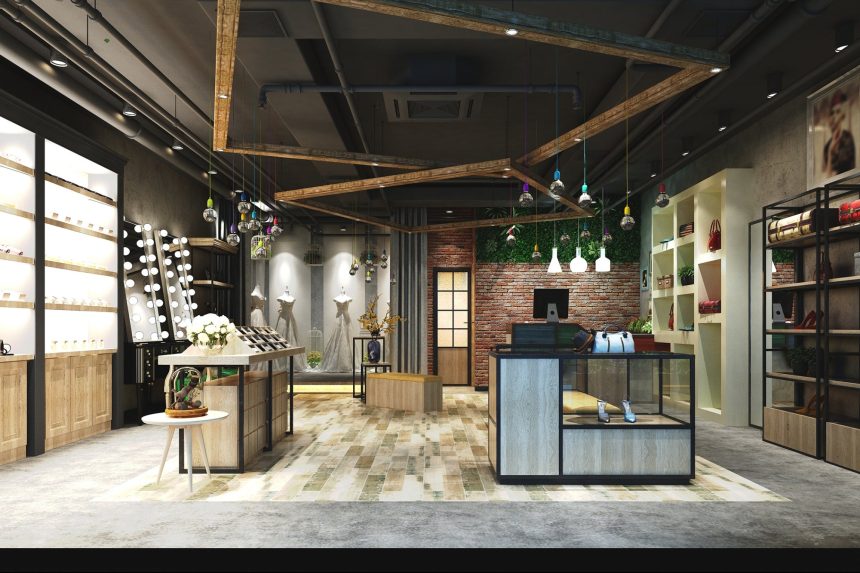Leasing a retail, commercial space is crucial for emerging entrepreneurs looking to establish a physical presence for their business. However, venturing into this area requires a fundamental understanding of several industry concepts to negotiate effectively and make informed decisions. This article offers a primer on essential industry knowledge needed before leasing a retail or commercial space.
1. Net leases: The common standard for retail leases
One of the most common lease types in retail is the Triple Net Lease (NNN Lease.) Under an NNN Lease, in addition to base rent, the tenant agrees to pay the property expenses, including property taxes, building insurance and maintenance costs.
Understanding the implications of a NNN lease is a prerequisite before inquiring about spaces. Knowing this information may help your credibility. Brokers and landlords expect a certain level of industry knowledge. Not understanding basic lease terms can cast doubt on your professional expertise.
Related: 5 Important Things to Know When Preparing to Lease a Retail Space
2. Letter of intent
The Letter of Intent (LOI) represents an important milestone in commercial real estate and is the first formal step. An LOI, essentially an offer, expresses your interest in the property and outlines the basic terms of the lease. Although an LOI is non-binding, understanding its purpose and knowing what to include can give you a competitive edge. It sets the negotiation tone and can demonstrate your seriousness about leasing the property.
3. Personal guarantee: A critical consideration
Knowing a personal guarantee is pivotal before venturing into a leasing process. A personal guarantee means you, as an individual, are liable if your business cannot meet the lease obligations. This can significantly impact your financial situation. Therefore, consulting with an attorney and an accountant is advisable to fully comprehend the implications before signing a lease agreement with a personal guarantee.
4. Determining your space needs
Before initiating inquiries, prospective tenants must have a concrete idea about their square footage requirements. Brokers and landlords often gauge the seriousness of a prospect based on their awareness of their spatial needs. If you are not aware of your square footage requirement, it may impact your credibility and deter potential landlords from considering you a viable tenant.
Related: Looking for Your Dream Office Space? Don’t Go It Alone.
5. Understanding build-out time and costs
Another crucial aspect of retail leasing is recognizing the significance of build-out time and costs. Even though delivery conditions differ based on the specifics of each space, you should have a rough idea of the improvements you’ll need and their associated costs. Knowing the timeframe required for your build-out is equally important. Consult with general contractors to understand the potential costs and timeframes. Having this information at your fingertips portrays you as a knowledgeable prospect and increases your chances of the landlord accepting your offer.
6. Know your lease term
An essential part of the leasing process is understanding the lease term. As a prospective tenant, you should know the lease duration you’re comfortable committing to, whether a shorter lease of one to two years or a longer term of five or more. If you plan an extensive build-out, avoiding signing a short-term lease makes sense. I have received inquiries from individuals looking to open a location requiring an extensive build-out. However, they have told me that they want a one-year lease. In this situation, the tenant loses credibility with me since this statement clearly shows they have not given much thought to their business.
Related: Viral Video Sparks Debate Over Whether or Not Renters Should Tip Landlord
7. Be aware of rent increases
Another critical factor to consider is the annual rent escalation, a common feature in most commercial leases. These increases, often a fixed percentage, ensure the landlord’s return keeps pace with inflation and the market’s upward trajectory. It’s crucial to understand that your rent will likely increase each year of your lease term and to factor this escalation into your budgeting process.
The significance of having a foundation of basic industry knowledge in retail leasing cannot be overstated. It is not merely beneficial but essential to understand the intricacies of the leasing process to engage effectively with brokers, landlords and other stakeholders. Possessing this knowledge allows you to negotiate the best possible terms and gives you the confidence to make informed decisions that align with your business’s goals and budget.
Having a grasp of these fundamental industry concepts can significantly influence the outcome of your leasing journey. You transform from a novice entrepreneur into a credible and respected prospect by comprehending critical elements such as lease types, rental escalations, build-out costs and personal guarantees. This elevated status improves your standing in negotiations and increases your chances of the landlord selecting you as their tenant.
Indeed, the process of leasing a retail space can be daunting, especially for newcomers to the industry. There are many moving parts to consider, and without a solid understanding of the process, one could easily be overwhelmed or make uninformed decisions. However, the process becomes less intimidating and more manageable with the right information and professional advice.
By learning and understanding these industry basics before starting the leasing process, you’ll be better equipped to navigate the complexities of commercial retail leasing. This preparedness reduces the risk of undesirable surprises and positions you for a more successful and productive leasing experience. Moreover, it enables you to communicate effectively with leasing brokers and landlords, demonstrating your seriousness and commitment to securing a space that fits your business needs.
Read the full article here










